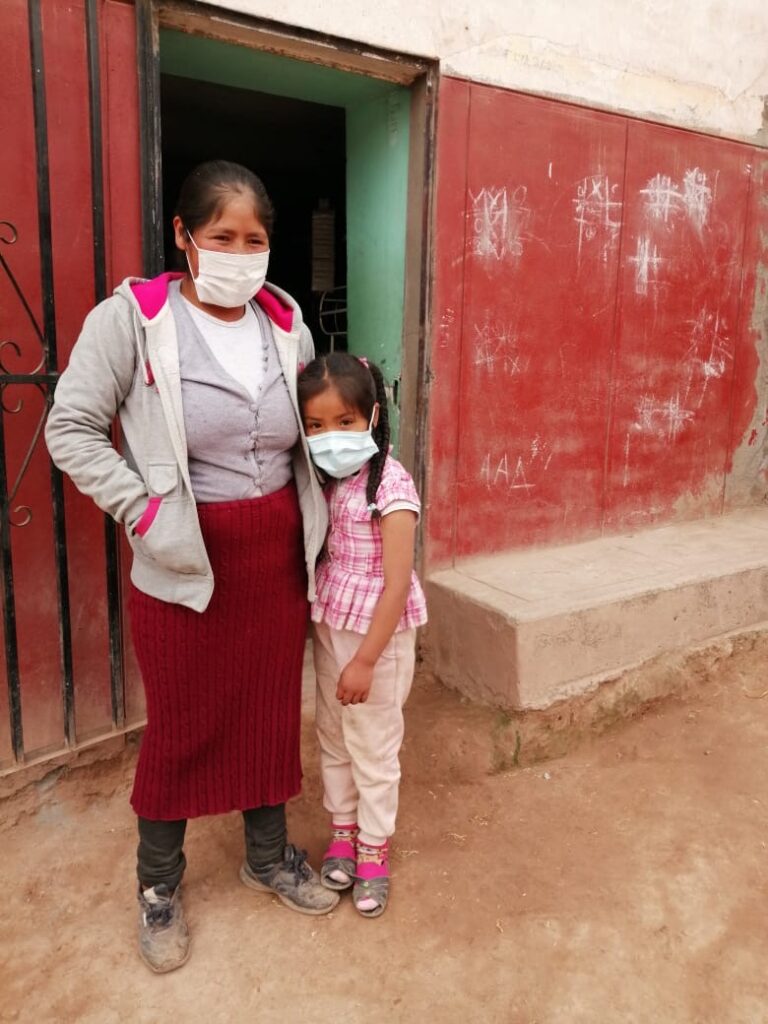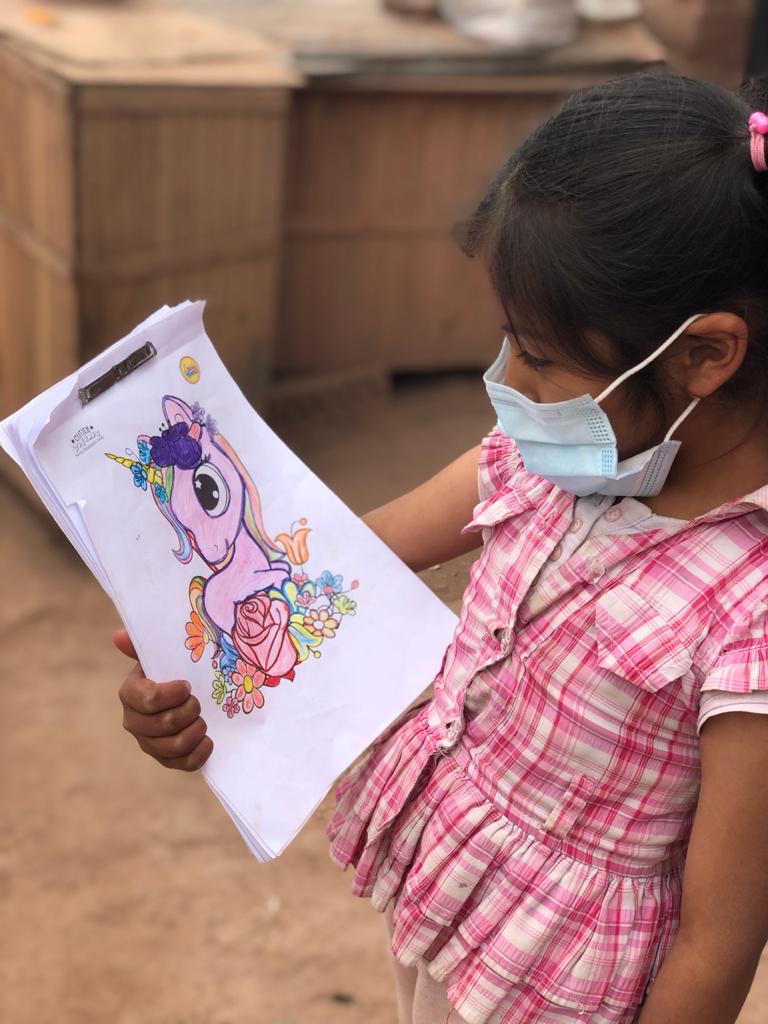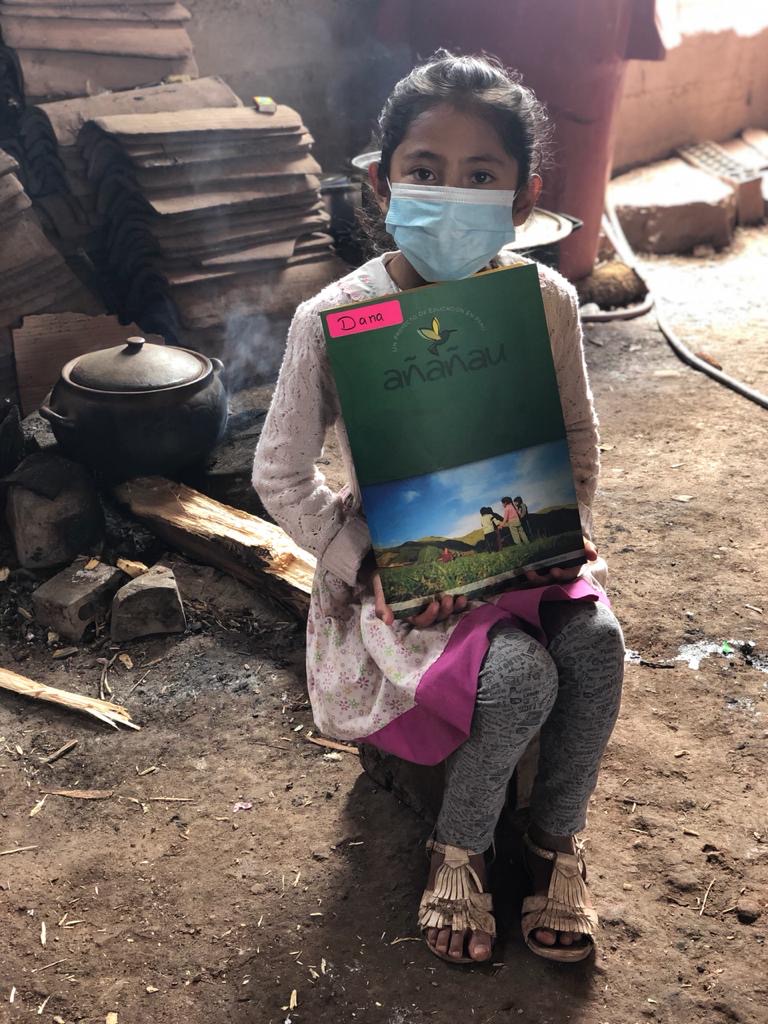Up-date Covid-19 in Peru
A very long lockdown
The past months have been hard and frustrating in Peru. The quarantine has now been officially lifted since the beginnings of October, but the country is in a big dip and the figures of infections are still not improving significantly. There is also still no question of reopening the schools.
For a long time it has been fairly quiet in Cusco. The number of infections and deaths did increase, but everything remained under control. That is why from July 1st the lockdown was suspended with joy and civilians were able to get out normally again. The country also started the first phases of the economic reactivation. Here in Cusco, various shops and companies went back to work, albeit under strict measures, and the first restaurants were able to start with a delivery service and afterwards also an adapted service in the establishment itself.
This also meant that interprovincial travel could be resumed, but that a lot of people also started to move within Peru. The Cusco region, where it was so far quiet in contrast to the horror in Lima, now received a whole influx of people from other regions and also due to the increased public social contact the number of infections exploded exponentially in a few weeks time. During the months of August and September we therefore had to go into strict quarantine again.
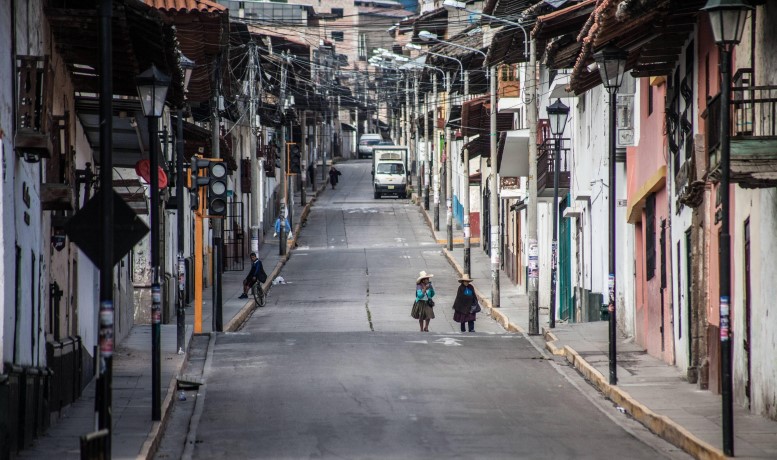
The pandemic also exposed the harsh reality of the Peruvian health system. Hospitals were hardly equipped to deal with this crisis. Also in Cusco there was soon a serious shortage of hospital beds, sufficient staff, medical supplies and especially oxygen. At the start of the pandemic, only 23 beds were available in intensive care in the entire region of Cusco to receive critical patients. The first corruption scandals also surfaced with mismanagement of budgets stretched to cope with the pandemic.
In Peru, the number of new infections seems to be leveling off, but the situation is not yet under control. Since the morning of September 30, Peru has over 800,000 COVID-19 infections and the death toll has risen to over 32,000. Together with Brazil, Columbia, Mexico and Argentina, it is one of the ten most affected countries in the world.
According to figures from Johns Hopkins University, Peru has had the highest death toll per 100,000 inhabitants worldwide since August. There are now more than 100. By comparison: in Belgium it is 86.9, in Bolivia 69 and Brazil 67.5. Despite an early lockdown, these are hard figures. (Juliete Billiet, MO* magazine, October 5, 2020)
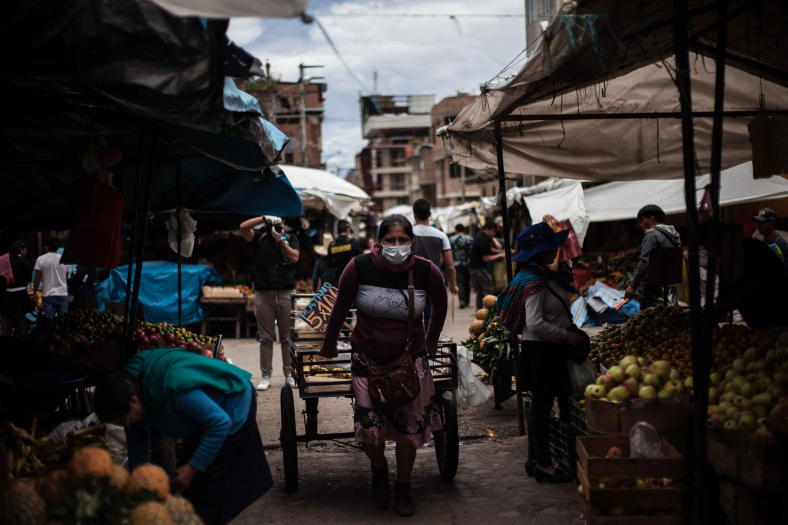
Also in the field of education many shortcomings and great inequality came to the surface. Although quarantine has now been suspended, schools in Peru are not allowed to reopen and the children are still required to stay at home. Since April, the Ministry of Education has started a distance learning program “I learn at home”, in which all boys and girls follow virtual lessons from home through radio, television and internet broadcasts. Homework should be sended to the teacher via Whatsapp. This seems like a temporary solution, but of course this solution exposes many bottlenecks in the education system and does not meet the needs and especially the reality of many children. Many families, both in the city and especially in rural areas, do not have access to the internet and do not have a laptop, tablet or smartphone to do their homework. Also many children cannot understand and process all this lessons and subject matter on their own as they are often alone.
This situation seems to continue for a longer time. Currently it seems that the reopening of the schools will be forseen for March 2021 when the new school year starts and this means that the complete current school year is lost. As an educational project, we will therefore continue to do everything we can to keep on supporting the children and help them at school level. In the meantime, all families have been able to obtain at least a very simple or outdated model of a smartphone so that the children can forward their homework to their teachers. This makes it easier now for us as well to maintain contact with the families and the children. Every day we assist the children in this way with questions about homework or difficult subject matter that they do not understand. Also the children themselves have grown in this themselves and have become much more independent and ask for help when something is not clear. Furthermore, in addition to offering the videos with the fun English lessons from Revlan, we are also preparing ourselves to start up a book project, where the children can receive weekly reading books at home adapted to their age and reading level. As you could read in the previous newsletters, we have also set up several campaigns with food packages for the families and educational exercise bundles for the children. We will continue all these activities as long as these needs continue. We realize that the learning deficits that have arisen among the children will be very great and we will therefore make extra efforts with remedial teaching and support for the children when we can resume the activities at the project center itself.
We are now quite a while further and have had a strict lockdown for almost 7 months, where almost the whole country has been standing still. You can imagine the impact this has on the lives of many people and an entire nation.
If you would like to help us continue all our activities in the context of Covid-19 and also ensure the continuity of the project work of Añañau, your support is still more than welcome!
You can make a donation by bank transfer to the bank details below or by paying by credit card or PayPal on the website.
via PayPal: PayPal.me/ananauorg
via bank transfer:
IBAN BE 92 9731 2324 7123 / BIC ARSPBE22
vzw Qué bonito! Landwaartslaan 20/1, 3600 Genk, Belgium
stating: “gift for Añañau Covid-19 – name”
Would you like a tax certificate for your donation? (Belgium only)
Deposit your donation via the Teachers without Borders (Leraren zonder Grenzen) bank account number (from a minimum of 40 euros per year).
In 2020 there is an exceptional tax benefit of 60% for all donations!:
IBAN BE48 5230 8027 2427 / BIC TRIOBEBB
Teachers without Borders vzw, Jan de Graefstraat 7, 2600 Berchem
with mention: “gift for LzG: project Añañau”

